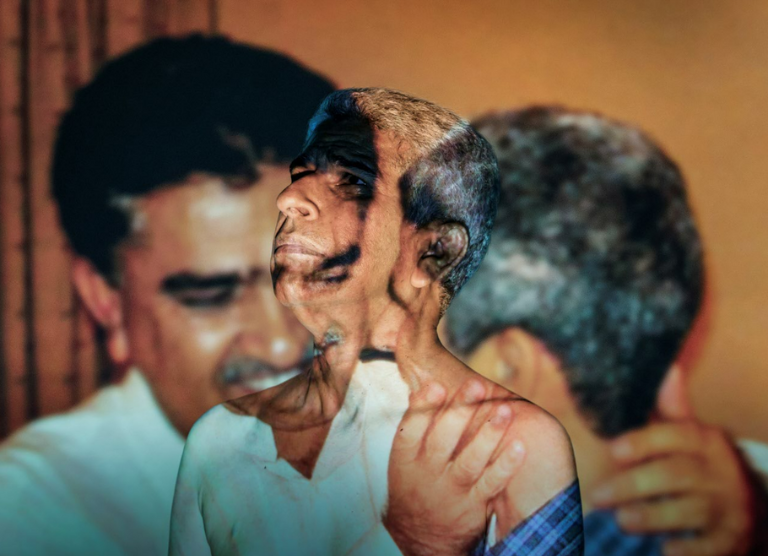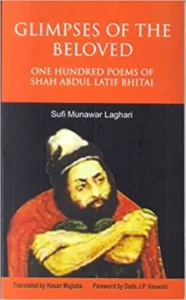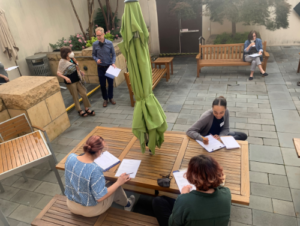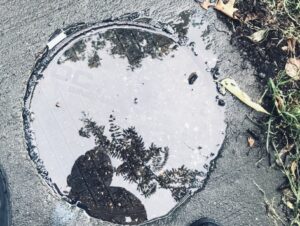Author, advocate, and survivor Sufi Laghari, whose portrait is featured in Portraits of Resilience at Phillips@THEARC (on view through July 29), discusses his experience being a part of the exhibition.

Jonathan Banks, Munawar “Sufi,” Pakistan, 2019, Photograph, Courtesy of the artist.
It was March 1997 when I moved to Washington, DC from New York. For the past 25 years, I have been a political activist, advocate and arts enthusiast. Although I knew The Phillips Collection, I hadn’t heard about Phillips@THEARC in Southeast DC until Jonathan Banks asked me to attend an opening event for Portraits of Resilience. The photo series features images of survivors of torture from around the world.
I’m honored to be a part of the exhibition, particularly because I am one of the founding members of Torture Abolition Survivor Support Coalition (TASSC) and could speak about my activism and advocacy at the opening. I shared my experience walking 350 miles from New York to DC for human rights and climate change and announced that I would walk 263 miles from Toronto to Ottawa as part of an advocacy campaign for the US Congress, Canadian Parliament, international community, think tanks, and universities.
It was a unique experience to be on a panel with other survivors and artists. I reflected at the event that art is a great source of inspiration for human dignity and liberty from slavery. Activism and advocacy are other forms of struggle against any dictatorship, racism, or oppression. The Phillips Collection gives voice to the voiceless people.
Sufi’s book is available for purchase in the Phillips’s gift shop.



